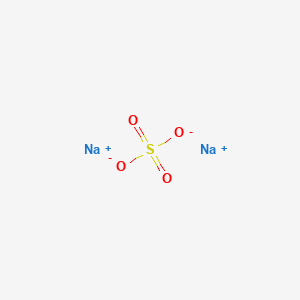SECTION 1. IDENTIFICATION
Product Name: Sodium Sulfate
Product Number: All applicable American Elements product codes, e.g. NA-SAT-02
, NA-SAT-03
, NA-SAT-04
, NA-SAT-05
CAS #: 7757-82-6
Relevant identified uses of the substance: Scientific research and development
Supplier details:
American Elements
10884 Weyburn Ave.
Los Angeles, CA 90024
Tel: +1 310-208-0551
Fax: +1 310-208-0351
Emergency telephone number:
Domestic, North America: +1 800-424-9300
International: +1 703-527-3887
SECTION 2. HAZARDS IDENTIFICATION
Classification of the substance or mixture
The substance is not classified according to the Globally Harmonized System (GHS).
GHS label elements not applicable
Hazard pictograms not applicable
Signal word not applicable
Hazard statements not applicable
Precautionary statements
P262 Do not get in eyes, on skin, or on clothing.
P280 Wear protective gloves/protective clothing/eye protection/face protection.
P305+P351+P338 IF IN EYES: Rinse cautiously with water for several minutes. Remove contact lenses, if
present and easy to do. Continue rinsing.
P304+P340 IF INHALED: Remove victim to fresh air and keep at rest in a position comfortable for
breathing.
P403+P233 Store in a well-ventilated place. Keep container tightly closed.
P501 Dispose of contents/container in accordance with local/regional/national/international
regulations.
Classification system:
NFPA ratings (scale 0 - 4)
0
0
0
Health = 0
Fire = 0
Reactivity = 0
HMIS-ratings (scale 0 - 4)
HEALTH
FIRE
REACTIVITY
0
0
0
Health = 0
Fire = 0
Reactivity = 0
Other hazards
Results of PBT and vPvB assessment
PBT: N/A
vPvB: N/A
SECTION 3. COMPOSITION/INFORMATION ON INGREDIENTS
Substances
CAS # / Substance Name
7757-82-6 sodium sulphate
Identification number(s)
EC number: 231-820-9
SECTION 4. FIRST AID MEASURES
Description of first aid measures
General information: No special measures required.
If inhaled: Supply fresh air; consult doctor in case of complaints.
In case of skin contact: Generally the product does not irritate the skin.
In case of eye contact: Rinse opened eye for several minutes under running water.
If swallowed: If symptoms persist consult doctor.
Most important symptoms and effects, both acute and delayed:
No data available
Indication of any immediate medical attention and special treatment needed
No data available
SECTION 5. FIREFIGHTING MEASURES
Extinguishing media
Suitable extinguishing agents:
CO2, extinguishing powder or water spray. Fight larger fires with water spray or alcohol resistant foam.
Special hazards arising from the substance or mixture No data available
Advice for firefighters
Protective equipment: No special measures required.
SECTION 6. ACCIDENTAL RELEASE MEASURES
Personal precautions, protective equipment and emergency procedures Not required.
Environmental precautions: No special measures required.
Methods and materials for containment and cleanup: Pick up mechanically.
Reference to other sections
See Section 7 for information on safe handling.
See Section 8 for information on personal protection equipment.
See Section 13 for disposal information.
SECTION 7. HANDLING AND STORAGE
Precautions for safe handling No special measures required.
Information about protection against explosions and fires: No special measures required.
Conditions for safe storage, including any incompatibilities:
Requirements to be met by storerooms and receptacles: No special requirements.
Information about storage in one common storage facility: Not required.
Further information about storage conditions: None.
Specific end use(s) No data available
SECTION 8. EXPOSURE CONTROLS/PERSONAL PROTECTION
Additional information about design of technical systems: No further data; see item 7.
Control parameters
Components with limit values that require monitoring at the workplace: Not required.
Additional information: The lists that were valid during the creation were used as basis.
Exposure controls
Personal protective equipment:
General protective and hygienic measures:
The usual precautionary measures for handling chemicals should be followed.
Breathing equipment: Not required.
Protection of hands:
Protective gloves
The glove material has to be impermeable and resistant to the product/ the substance/ the preparation.
Due to missing tests no recommendation to the glove material can be given for the product/ the preparation/ the
chemical mixture.
Selection of the glove material on consideration of the penetration times, rates of diffusion and the degradation
Material of gloves
The selection of the suitable gloves does not only depend on the material, but also on further marks of quality and
varies from manufacturer to manufacturer.
Penetration time of glove material
The exact break through time has to be found out by the manufacturer of the protective gloves and has to be
observed.
Eye protection: Safety glasses
SECTION 9. PHYSICAL AND CHEMICAL PROPERTIES
Information on basic physical and chemical properties
Appearance:
Form: Powder
Color: White
Odor: Odorless
Odor threshold: No data available.
pH: N/A
Melting point/Melting range: 888 °C (1630 °F)
Boiling point/Boiling range: Undetermined.
Flash point: N/A
Flammability (solid, gas): Product is not flammable.
Ignition temperature:
Decomposition temperature: No data available.
Autoignition: No data available.
Danger of explosion: Product does not present an explosion hazard.
Explosion limits:
Lower: No data available.
Upper: No data available.
Vapor pressure: no data hPa
Density at 20 °C (68 °F): 2.68 g/cm3 (22.365 lbs/gal)
Relative density No data available.
Vapor density N/A
Evaporation rate N/A
Solubility in / Miscibility with
Water: Insoluble.
Partition coefficient (n-octanol/water): No data available.
Viscosity:
Dynamic: N/A
Kinematic: N/A
Organic solvents: 0.0 %
Solids content: 100.0 %
Other information No data available
SECTION 10. STABILITY AND REACTIVITY
Reactivity
Chemical stability
Thermal decomposition / conditions to be avoided: No decomposition if used according to specifications.
Possibility of hazardous reactions No dangerous reactions known.
Conditions to avoid No data available
Incompatible materials: No data available
Hazardous decomposition products: No dangerous decomposition products known.
SECTION 11. TOXICOLOGICAL INFORMATION
Information on toxicological effects
Acute toxicity:
LD/LC50 values that are relevant for classification:
7757-82-6 sodium sulphate
Oral LD50 5989 mg/kg (mouse)
Primary irritant effect:
on the skin: No irritant effect.
on the eye: No irritating effect.
Sensitization: No sensitizing effects known.
Additional toxicological information:
When used and handled according to specifications, the product does not have any harmful effects according to
our experience and the information provided to us.
The substance is not subject to classification.
Carcinogenic categories
IARC (International Agency for Research on Cancer)
Substance is not listed.
NTP (National Toxicology Program)
Substance is not listed.
OSHA-Ca (Occupational Safety & Health Administration)
Substance is not listed.
SECTION 12. ECOLOGICAL INFORMATION
Toxicity
Aquatic toxicity: No data available
Persistence and degradability No data available
Bioaccumulative potential No data available
Mobility in soil No data available
Additional ecological information: Not known to be hazardous to water.
Results of PBT and vPvB assessment
PBT: N/A
vPvB: N/A
Other adverse effects No data available
SECTION 13. DISPOSAL CONSIDERATIONS
Waste treatment methods
Recommendation: Disposal must be made according to official regulations.
Uncleaned packagings:
Recommendation: Disposal must be made according to official regulations.
SECTION 14. TRANSPORT INFORMATION
UN-Number
DOT, ADN, IMDG, IATA not regulated
UN proper shipping name
DOT, ADN, IMDG, IATA not regulated
Transport hazard class(es)
DOT, ADN, IMDG, IATA
Class not regulated
Packing group
DOT, IMDG, IATA not regulated
Environmental hazards:
Marine pollutant: No
Special precautions for user N/A
Transport in bulk according to Annex II of
MARPOL73/78 and the IBC Code N/A
UN "Model Regulation": -
SECTION 15. REGULATORY INFORMATION
Safety, health and environmental regulations/legislation specific for the substance or mixture
Sara
Section 355 (extremely hazardous substances):
Substance is not listed.
Section 313 (Specific toxic chemical listings):
Substance is not listed.
TSCA (Toxic Substances Control Act):
Substance is listed.
Proposition 65
Chemicals known to cause cancer:
Substance is not listed.
Chemicals known to cause reproductive toxicity for females:
Substance is not listed.
Chemicals known to cause reproductive toxicity for males:
Substance is not listed.
Chemicals known to cause developmental toxicity:
Substance is not listed.
Carcinogenic categories
EPA (Environmental Protection Agency)
Substance is not listed.
TLV (Threshold Limit Value established by ACGIH)
Substance is not listed.
NIOSH-Ca (National Institute for Occupational Safety and Health)
Substance is not listed.
GHS label elements not applicable
Hazard pictograms not applicable
Signal word not applicable
Hazard statements not applicable
Precautionary statements
P262 Do not get in eyes, on skin, or on clothing.
P280 Wear protective gloves/protective clothing/eye protection/face protection.
P305+P351+P338 IF IN EYES: Rinse cautiously with water for several minutes. Remove contact lenses, if
present and easy to do. Continue rinsing.
P304+P340 IF INHALED: Remove victim to fresh air and keep at rest in a position comfortable for
breathing.
P403+P233 Store in a well-ventilated place. Keep container tightly closed.
P501 Dispose of contents/container in accordance with local/regional/national/international
regulations.
Chemical safety assessment: A Chemical Safety Assessment has not been carried out.
SECTION 16. OTHER INFORMATION
Safety Data Sheet according to Regulation (EC) No. 1907/2006 (REACH). The above information is believed to be correct but does not purport to be all inclusive and shall be used only as a guide. The information in this document is based on the present state of our knowledge and is applicable to the product with regard to appropriate safety precautions. It does not represent any guarantee of the properties of the product. American Elements shall not be held liable for any damage resulting from handling or from contact with the above product. See reverse side of invoice or packing slip for additional terms and conditions of sale. COPYRIGHT 1997-2022 AMERICAN ELEMENTS. LICENSED GRANTED TO MAKE UNLIMITED PAPER COPIES FOR INTERNAL USE ONLY.
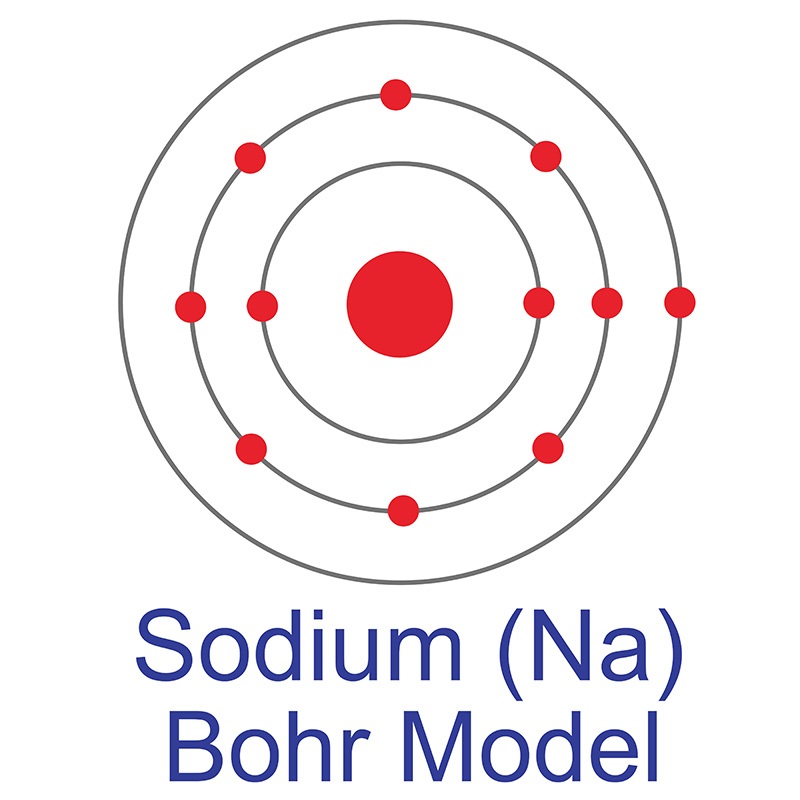 See more Sodium products. Sodium (atomic symbol: Na, atomic number: 11) is a Block D, Group 5, Period 4 element with an atomic weight of 22.989769. The number of electrons in each of Sodium's shells is [2, 8, 1] and its electron configuration is [Ne] 3s1. The sodium atom has a radius of 185.8 pm and a Van der Waals radius of 227 pm. Sodium was discovered and first isolated by Sir Humphrey Davy in 1807. In its elemental form, sodium has a silvery-white metallic appearance. It is the sixth most abundant element, making up 2.6 % of the earth's crust. Sodium does not occur in nature as a free element and must be extracted from its compounds (e.g., feldspars, sodalite, and rock salt). The name Sodium is thought to come from the Arabic word suda, meaning "headache" (due to sodium carbonate's headache-alleviating properties), and its elemental symbol Na comes from natrium, its Latin name.
See more Sodium products. Sodium (atomic symbol: Na, atomic number: 11) is a Block D, Group 5, Period 4 element with an atomic weight of 22.989769. The number of electrons in each of Sodium's shells is [2, 8, 1] and its electron configuration is [Ne] 3s1. The sodium atom has a radius of 185.8 pm and a Van der Waals radius of 227 pm. Sodium was discovered and first isolated by Sir Humphrey Davy in 1807. In its elemental form, sodium has a silvery-white metallic appearance. It is the sixth most abundant element, making up 2.6 % of the earth's crust. Sodium does not occur in nature as a free element and must be extracted from its compounds (e.g., feldspars, sodalite, and rock salt). The name Sodium is thought to come from the Arabic word suda, meaning "headache" (due to sodium carbonate's headache-alleviating properties), and its elemental symbol Na comes from natrium, its Latin name.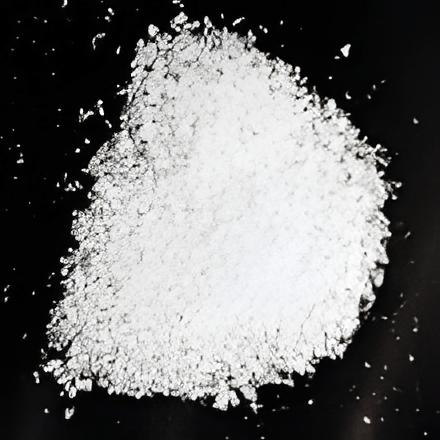
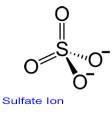
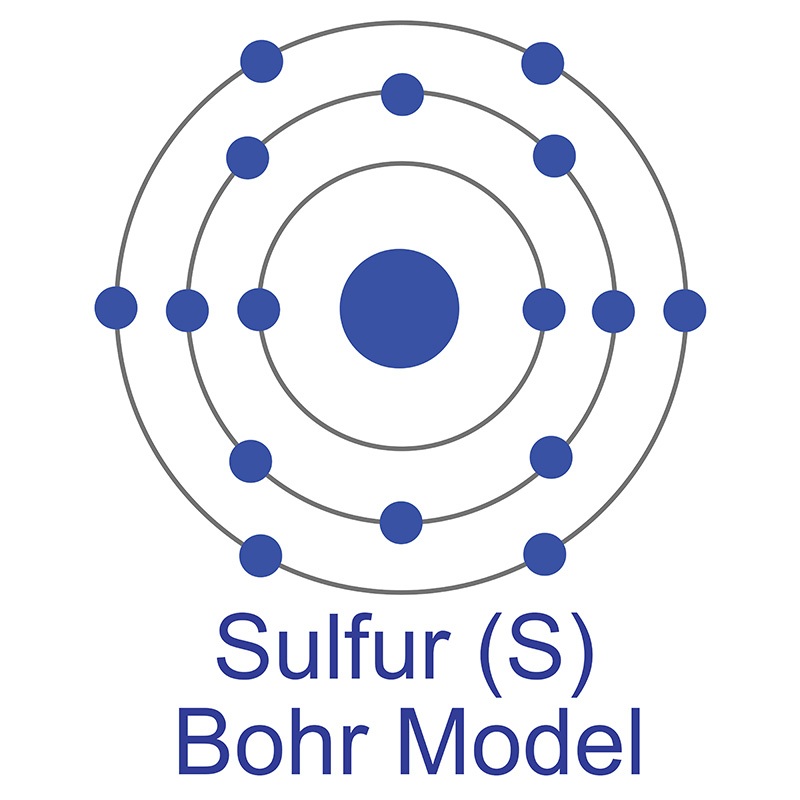 The number of electrons in each of Sulfur's shells is 2, 8, 6 and its electron configuration is [Ne] 3s2 3p4. In its elemental form, sulfur has a light yellow appearance. The sulfur atom has a covalent radius of 105 pm and a Van der Waals radius of 180 pm. In nature, sulfur can be found in hot springs, meteorites, volcanoes, and as galena, gypsum, and epsom salts. Sulfur has been known since ancient times but was not accepted as an element until 1777, when Antoine Lavoisier helped to convince the scientific community that it was an element and not a compound.
The number of electrons in each of Sulfur's shells is 2, 8, 6 and its electron configuration is [Ne] 3s2 3p4. In its elemental form, sulfur has a light yellow appearance. The sulfur atom has a covalent radius of 105 pm and a Van der Waals radius of 180 pm. In nature, sulfur can be found in hot springs, meteorites, volcanoes, and as galena, gypsum, and epsom salts. Sulfur has been known since ancient times but was not accepted as an element until 1777, when Antoine Lavoisier helped to convince the scientific community that it was an element and not a compound.
